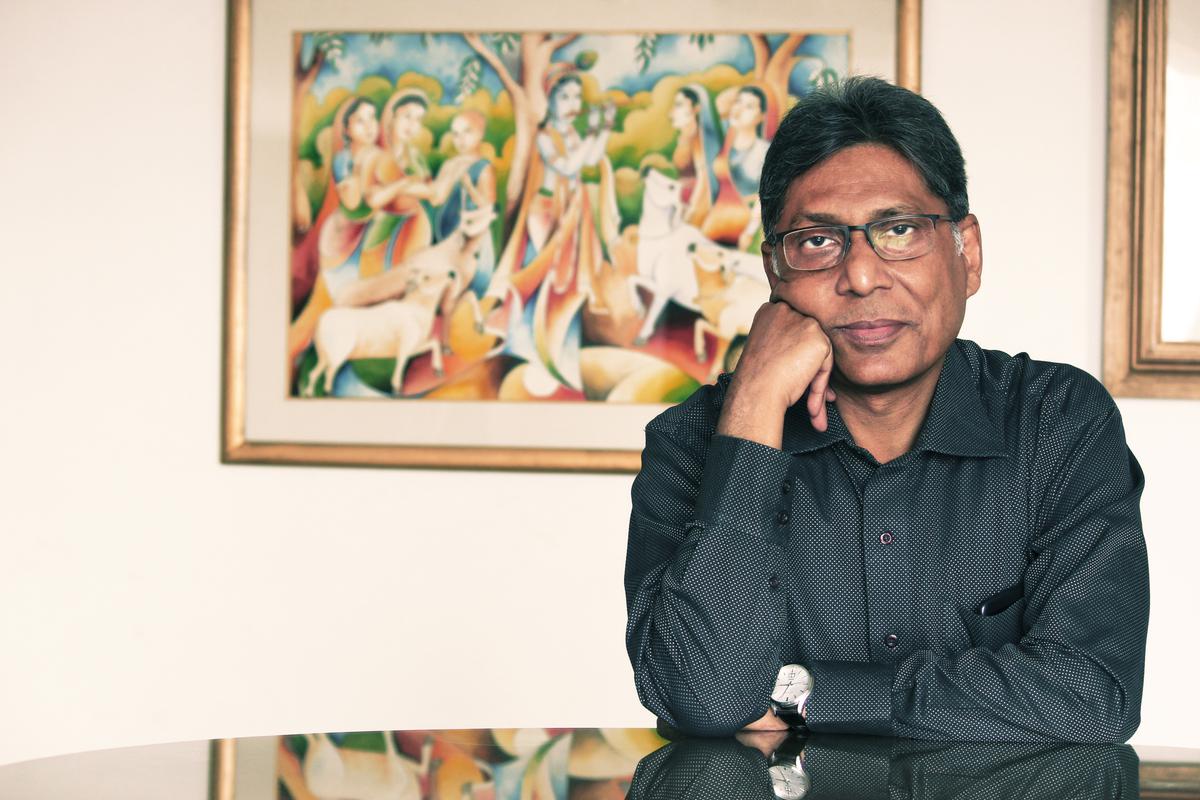Poet-Translator Anisur Rahman | Photo Credit: Special Arrangement
It’s been a long brutal winter. Now weary with time, it is almost desperate to shed its burden and fade away, unloved, perhaps even helpless. As famous poet Kaifi Azmi has said in his equally famous poem, I woke up in fear of her thinking that she will stop, she will take care of me., The beloved never stopped her lover there.
Poet-Translator Anisur Rahman | Photo Credit: Special Arrangement
Here, a poem about love returns to public memory as ‘repentance’ in poet-translator Anisur Rahman’s book thousand color poetry, wonderful world of urdu nazmA book so beautiful that it took four years to complete, a work so deep that it was inspired by Rahman’s past. a thousand wishesI.
Rahman, who shared his love for poetry with generations of students as an academic at Jamia Millia Islamia, says, “I have always been interested in comparative literature. There came a time when I thought I should go back to my roots, my language. When teaching English, if I quoted Ghalib or Mir, students would happily admit that they understood the larger literary traditions of English through their works.
Rahman, who is a consultant to Rekhta (online portal for promotion of Urdu literature), is using his authority over the language to take the works of Urdu poets to a wider audience. if his thousands of wishes like this It was a celebration of Ghazals, it is all about Nazm. Regarding this celebration of Urdu poets in English, Rahman admits, “It can be called a sequel in a way.” “The book has Urdu poetry but not in Urdu. If we had used Persian script in the book, then only those who read and write Urdu could understand or read it. My aim was to take the message forward. If we had used the Urdu text together, the book would have become cumbersome. If we had done all this in Urdu only, the reach of the book would have been limited. We must remember that some of the best works on Ghalib have come from Columbia University.

Poet-Translator Anisur Rahman | Photo Credit: Special Arrangement
When you talk of Balraj Komal and Brij Narayan Chakbast along with Faiz Ahmed Faiz, Sahir Ludhianvi and Kaifi Azmi, it immediately tells us that Urdu has no religion.
“It is true. Rajendra Manchanda, Brij Narayan Chakbast and others have been part of a great tradition. Chakbast’s Urdu Ramayana has been brilliant. I wanted it to be staged in Rekhta’s literary play.
Isn’t it true that many people who cannot read Urdu often think of Urdu poetry only as romantic, ‘shama-parwana’ poetry loved by the youth?
This is true. But that mold is now broken. Now no one can say that Urdu poetry is confined to romance. It is about the realities of life. The boundaries of Urdu poetry have expanded.
How to present this book to a non-Urdu reader?
‘For a non-Urdu reader, we have a good introduction to each poet. The reader will be able to place and give context to the poet before entering the actual poem. This book is the result of years of painstaking research into the selection of poets, their works and their translations. It is like a rose, each petal has fragrance, and each fragrant petal is followed by another beautiful one.